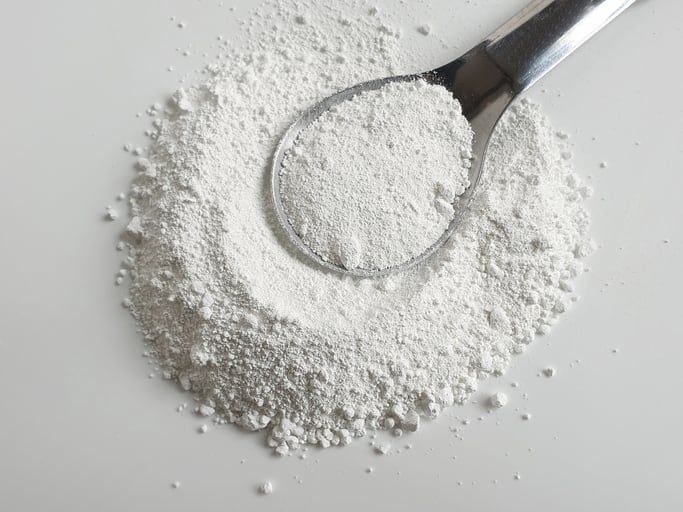The update revises EFSA’s previous assessment, published in 2016, which concluded the ingredient could be used in food applications but highlighted the need for more research to fill ‘data gaps’.
The contentious ingredient continued to be linked to negative health consequences, including damage to the intestinal flora and - in the form of very small nanoparticles – the development of cancer. EFSA said its fresh assessment took into account ‘many thousands’ of studies that have become available since 2016, including fresh scientific evidence on nanoparticles.
“Taking into account all available scientific studies and data, the panel [on Food Additives and Flavourings] concluded that titanium dioxide can no longer be considered safe as a food additive,” said EFSA Panel Chair Prof Maged Younes.
“A critical element in reaching this conclusion is that we could not exclude genotoxicity concerns after consumption of titanium dioxide particles. After oral ingestion, the absorption of titanium dioxide particles is low, however they can accumulate in the body.”
Genotoxicity refers to the ability of a chemical substance to damage DNA. Genotoxicity may lead to carcinogenic effects, making it ‘essential’ to assess the potential genotoxic effect of a substance to determine its safety.
“Although the evidence for general toxic effects was not conclusive, on the basis of the new data and strengthened methods we could not rule out a concern for genotoxicity and consequently we could not establish a safe level for daily intake of the food additive,” Prof Matthew Wright, both a member of the FAF Panel and chair of EFSA’s working group on E 171, said.
EFSA carried out this fresh safety assessment on the back of a request from the European Commission. Towards the end of last year, the European Parliament rejected a Commission proposal calling for more stringent measures to control the use of E171 in food.
Banning E171 a ‘no brainer’
Risk managers at the European Commission and in EU Member States have been informed of EFSA’s conclusions and will consider ‘appropriate action’ to ensure consumers protection, EFSA said.
European consumer group BEUC called on the Commission to take swift action to ban the use of E171 in food production.
“We urge the European Commission to promptly propose to Member States to ban E171. With yet another piece of evidence that the additive raises safety concerns, it is a no brainer that governments must support its ban for use in food across the EU,” Camille Perrin, BEUC’s Senior Food Policy Officer, urged.
“EFSA’s latest opinion on titanium dioxide (E171) published today is clear: the genotoxicity of the white colouring cannot be ruled out. It means it may harm DNA and hence our health, and therefore no safe level of intake could be set. As such, we believe it has no place in our food.”
BEUC has long been calling for titanium dioxide to be removed from the list of approved food additives in the EU. Back in 2019, the organization urged the Commission to ban E171 based on the precautionary principle after France announced plans to ban the additive in food products from January 2020. According to France’s health and safety agency (ANSES), a lack of evidence guaranteeing the safety of titanium dioxide informed the decision.
.
“Together with our member organisations and several other civil society organisations, we raised the alarm bell over titanium dioxide’s safety already in 2019. We wish EU policymakers acted earlier and followed the example of France, where E171 has been banned for use in food since January 2020 based on the precautionary principle,” Perrin reflected.
E171 is a colouring with no nutritional value. It is predominantly used in sweets, chewing gum, baked good, and sauces, to give a white, opaque or cloudy effect. Perrin argued it is ‘not needed from a technological point of view’. “It is only used for aesthetic purpose, has no nutritional value, nor does make foods last longer for instance. In brief, it brings no benefit to consumers. Experience from France shows that food makers can dispense with this white colouring in their products, with many having already removed it from their recipes. Now is time to have this additive banned across the EU.”




